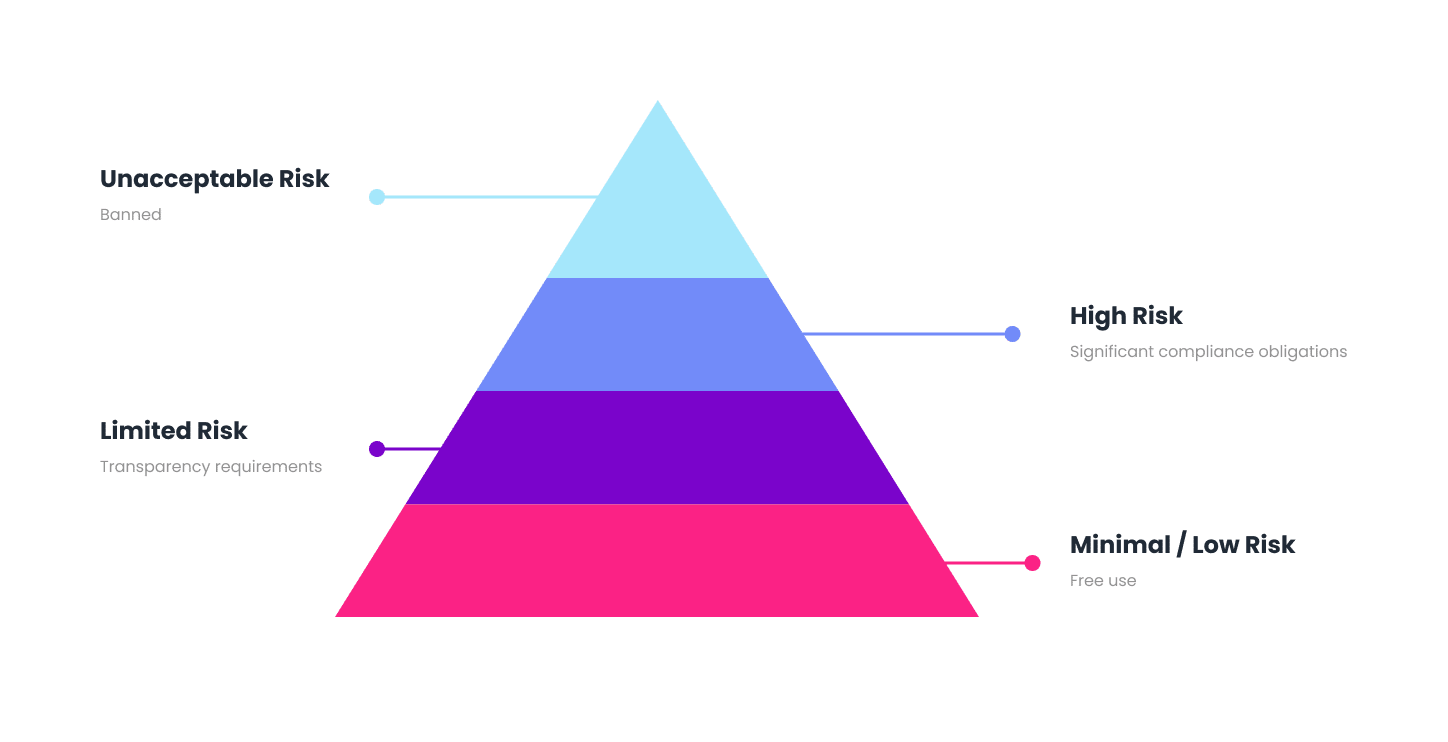Prepare for the EU AI Act
The EU AI Act will be finalized in early 2024. This law applies generally to companies doing business in the European market – so, like GDPR, most global companies will need to comply.
Note that final regulations are still being completed; we will update this page as new regulations are completed.
Complying with an extremely broad regulation like the AI Act is a challenge. Proceptual partners with our clients to ensure smooth compliance.
Learn More About EU AI Act Compliance
How does Proceptual Help?
Note: Steps 0 and 1 can be completed today, in advance of final approval. Steps 2-4 should be performed once final language is approved, likely in Q1 2024.
Step 0
Staff: Designate internal steering committee and AI compliance leader
Step 1
Inventory: Create AI system inventory (internal and vendor tools)
Step 2
Classify Tools: Assess tools-in-use for likely risk classification
Step 3
Assess and Document: Create documentation and perform “fundamental rights impact assessment” on each relevant system
Step 4
Implement: Publish transparency and opt-out requirements
Step 5
Systematize: Enact ongoing review of systems

FAQ
We don’t make AI systems. Does this apply?
Yes. Much like GDPR, the AI Act will apply to both vendors of AI systems and the companies that deploy those systems in the European market. Given the prevalence of AI components to common software, nearly every company will need to consider AI Act compliance.
What systems are banned as unacceptable?
A number of systems are banned by the AI Act including biometric categorization systems that use certain protected classes, scraping facial images, social scoring systems, and emotion recognition systems.
What AI systems are designated high-risk?
A wide range of systems will be labeled High Risk and require significant compliance obligations. High risk systems include (but are not limited to):
- Medical devices
- Infrastructure (for example, electricity generation)
- Systems to do with education, vocational training, and employment
When should companies start preparing for the AI Act?
Now is the right time to start preparing. While the entirety of the act will not be in force until 2026, some portions of the law, such as the ban on certain “unacceptable risk” systems, are likely to go into effect in late 2024.
What are the penalties for non-compliance?
Fines are quite substantial:
- 35 million euros or 7% of total company revenue for violations of banned applications
- 15 million euros or 3% of global revenue for violations of the act’s other obligations
- 7.5 million europe or 1.5% of total worldwide revenue for supplying incorrect information
There will be certain caps for startups and small businesses that have not yet been defined.
